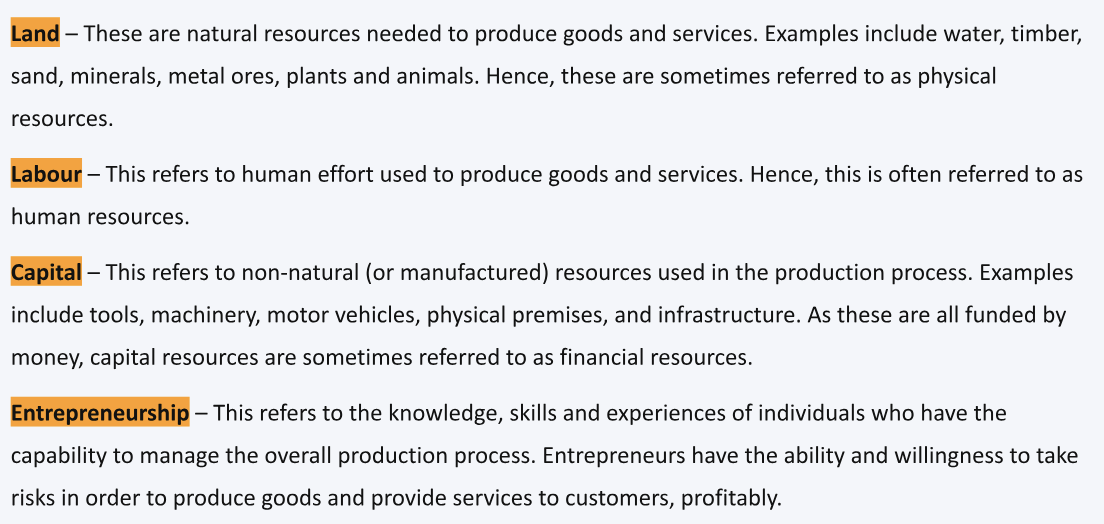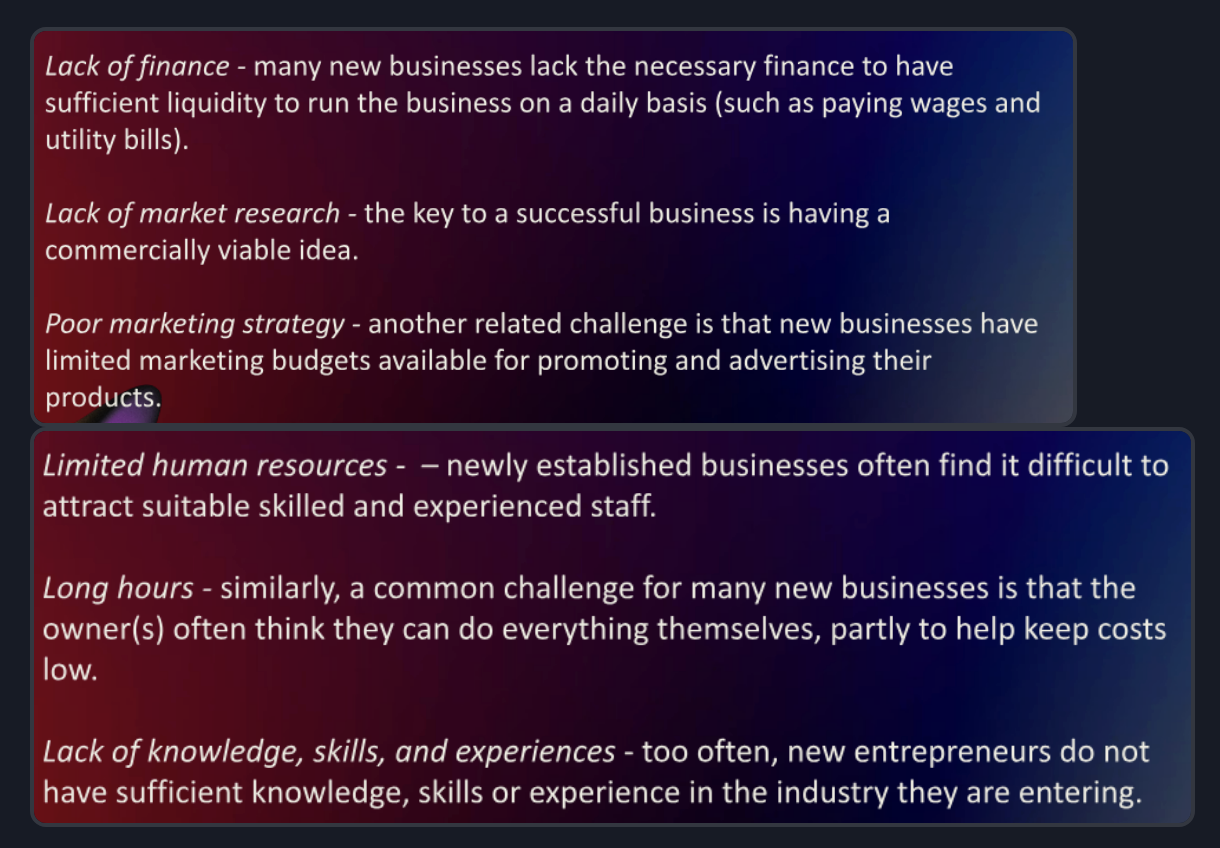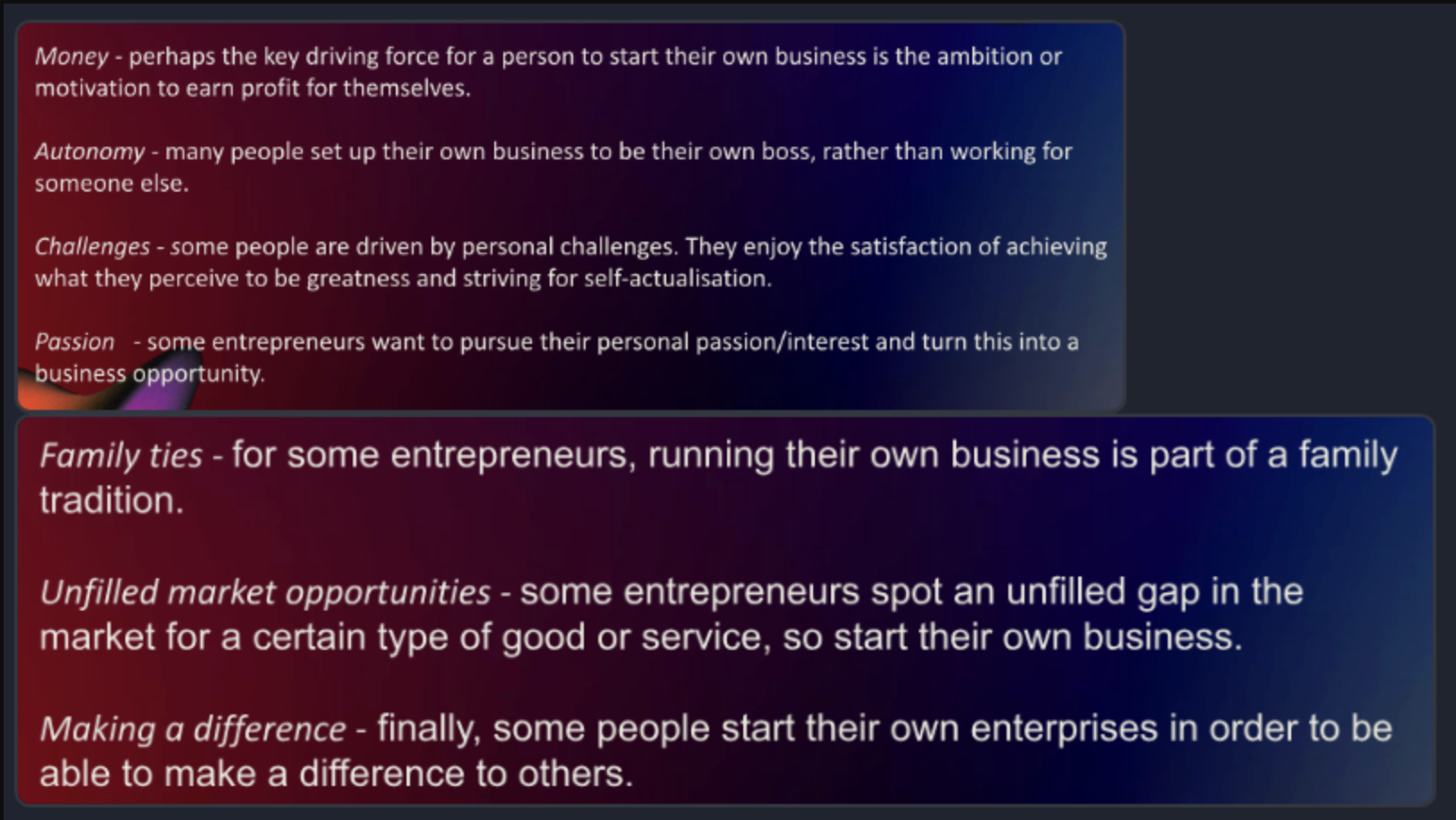Unit 1: Business organization and environment
1/38
There's no tags or description
Looks like no tags are added yet.
Name | Mastery | Learn | Test | Matching | Spaced |
|---|
No study sessions yet.
39 Terms
what is a business's purpose?
to satisfy needs and wants of their customers by selling goods and services, usually in return for profit.
to create a customer (peter drucker)
what are the main functions of business orgs?
hr, finance, marketing, or
what is a business?
a decision-making organization established to produce goods and/or provide services
what are goods?
physical products
what are services?
intangible products

what are the factors of production?
land, labor, capital, entrepreneurship

what is adding value?
producing a particular good or service worth more than the cost of the resources used to produce it
what is the difference between customers and consumers?
consumers are the people who use goods and services while customers are the people or businesses that purchase goods and services
what is the primary sector?
involved with the extraction of natural resources
primary sector production is also known as extractive production
what are notable things about the primary sector?
predominant sector in low-income economies/less economically developed countries
the added value of the output is relatively low
what is the secondary sector?
involved with the manufacturing or construction of finished products
transforms primary sector output into finished goods
what are notable things about the secondary sector?
predominant sector in economically developing countries/middle-income countries
said to be the "engine of growth"
what is the tertiary sector?
involved with providing services to customers
what are notable things about the tertiary sector?
predominant sector in economically developed countries/high-income economies
added value is very high
what is the quaternary sector?
involved with the creation or sharing of knowledge and information, as well as using computer and digital information technologies
what is entrepreneurship?
the traits of individuals who run their own business/es, aka an entrepreneur
what are important traits of an entrepreneur?
Risk-taker
Innovative
Strategist
Enthusiastic
Resilient
what are common challenges new businesses may encounter?
- lack of finance
- lack of market research
- poor marketing strategy
- limited human resources
- long hours
- lack of knowledge, skills, and experiences

what opportunities could incentivize people to start their own business?
- money
- autonomy
- challenges
- passions
- family ties
- unfilled market opportunities
- making a difference

what is the private sector of the economy?
it consists of businesses owned and run by private individuals and organizations that usually aim to earn a profit
what is the public sector of the economy?
business organizations in the public sector are controlled by a regional and/or national government, mainly to provide essential goods and services for the general public
what are the terms for evaluation for types of entities?
liability, legal identity, transparency, accountability, and set-up costs
explain liability
the extent to which you risk losing personal possessions in case of business failure
two types:
unlimited liability
100% personally responsible for all the losses a business might have
limited liability
losses don’t affect your personal assets, only your investment
explain legal identity
the formal registration of a human/non-human identity, whether you exist from a legal perspective
two types:
incorporated
legal identity is not shared with the owner
apple and tim cook
unincorporated
legal identity is shared with the owner
your friend’s small business
explain transparency
the extent to which businesses have to disclose their financial data
explain accountability
the degree to which a person or business must answer to someone
explain set-up costs
how much it takes to set up a business
what are companies?
companies aka corporations for commercial for-profit businesses owned by shareholders
they are incorporated and with limited liability
explain the two categories of companies
privately held companies
shares cannot be advertised for sale nor sold
usually small businesses but can be large orgs
usually no legal requirement for the company to publish detailed financial accounts
publicly held companies
shares are traded on a public stock exchange
no need for prior approval of existing owners for trading of shares
strictly regulated and required to publish final accounts annually
no legal limit on max num. of shareholders
when a company first sells its shares, it does so through an IPO (initial public offering)
what are the advantages and disadvantages of privately held companies?
what are the advantages and disadvantages of publicly held companies?